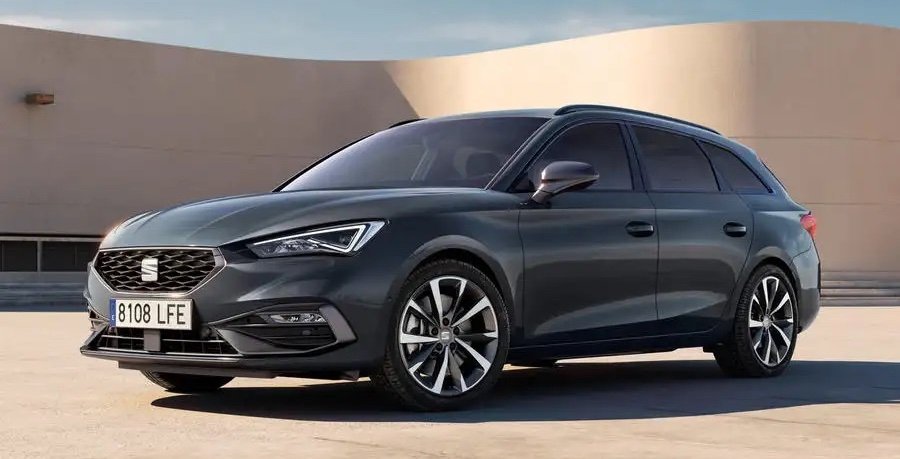Seat Leon update brings 62-mile PHEV and upgraded infotainment

The Seat Leon has been updated with a range of more efficient petrol and plug-in hybrid powertrains, as well as upgraded interior technologies.
The entry-level 1.0-litre turbo petrol engine has been replaced with an updated version of the larger 1.5-litre turbo unit. It sends 114bhp and 162lb ft of torque – 6bhp and 14lb ft more than previously – through a six-speed manual gearbox.
In addition to the extra power, it also yields an extra 1.9mpg compared with the axed 1.0-litre unit, officially giving 53.3mpg.
The 1.4-litre PHEV has also been dropped from the line-up. It's replaced with a new PHEV that pairs the aforementioned 1.5-litre engine with an electric motor and a 19.7kWh lithium-ion battery pack. The result is a combined 201bhp, 258lb ft and an electric-only range of more than 62 miles.
Inside, the Leon’s on-board technologies have received a notable upgrade, gaining the same 10.4in infotainment touchscreen as the revised Volkswagen Golf and Skoda Octavia. A larger 12.9in display is offered as an optional extra.
The temperature control slider is now illuminated, addressing a key criticism of the interior's usability.
An upgraded wireless smartphone charging pad is also available, putting out up to 15W. It's also refrigerated to keep your phone’s battery cool and thus improve charging performance.
Production of the new Leon will begin imminently. Given the improvements to the car's technological offering, prices are expected to increase slightly compared with the outgoing version. For reference, the Leon hatchback currently starts from £23,905, whereas the estate is £25,340.
News of the Leon update comes as Seat refreshes several key models, including the Arona crossover and Ibiza supermini, amid an investment programme aimed at reinvigorating the brand after the Covid pandemic and a period in which its sibling Cupra took priority.
CEO Wayne Griffiths recently confirmed to Autocar that Seat plans to launch a €20,000 (£17,000) electric car. However, it isn't an immediate priority for the Spanish firm, as it wouldn't be profitable if launched today.
Related News
